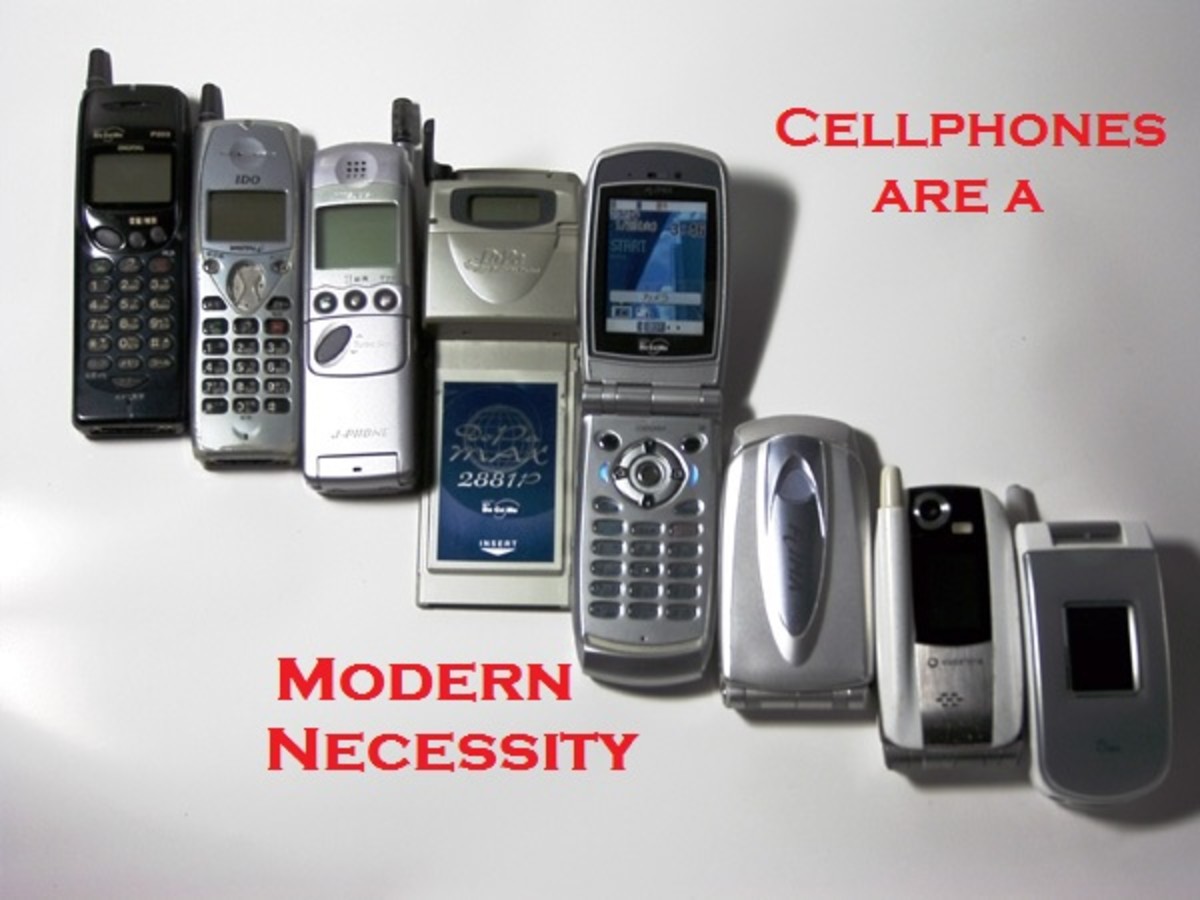Things to Consider Before Buying a Cell Phone

Cellphone Buying Guide
As an open and unashamed geek, one of the questions I often have to deal with from friends & family is "what's the best cellphone to buy?", and another common variation, "what do I need to know before buying a new cellphone?"
So I decided to put together a short and sweet buying guide on what I consider to be the 'best things' to keep in mind when buying a new cellphone. If you're in the market for a new device and you feel overwhelmed by the hundreds of different options, here are a few points to help you decide which cellphone is best for you.
What are your personal needs?
The first and most important thing to consider when buying a cellphone is your own personal, and physical, needs. Why is this the most important? Because once you know what your basic needs are, you can easily narrow down your choices to a handful (no pun intended) of cellphones to keep on a shortlist before you buy.
For instance, if your eyesight isn't very good and you have to wear glasses to read books or use your computer, then your first need is - you guessed - a large screen.
Secondly, do you have big hands and consequentially large thumbs? Then you will need a cellphone with either a large keypad with well-spaced buttons, or something that allows you to connect an external keyboard to use with it.
These are all the examples I can give you, since there are too many differing and unique personal needs to cover in one article, but I'm sure you get the picture. Keep in mind to look for a phone that is appropriate and comfortable for you.
Prepaid or contract?
The next important thing to consider is how you will be paying for the cellphone. Will you be going with a prepaid package, where you pay for the standalone phone at its full retail market price, or a contract package, where you pay in monthly installments for use of the phone and cell network?
There is seldom an easy way to decide between these two options, since they both come with their own pros and cons. It is always a good idea to read the fine print (on both contract and prepaid options) just as you would if you were buying a new car.
In very general terms then - with contract packages the actual cellphone is included in the monthly cost, which means you won't have to fork out any of your savings to afford it. But on the flip-side, this means that you will more than likely end up paying more for the cellphone itself in the long run.
Going for a prepaid phone, on the other hand, means that you will completely own the device once you pay for it - a real bonus if you can afford the hefty price tag of most mobiles on the market these days.
Which Operating System?
To be completely fair, the term 'cellphone' has almost lost its meaning to the newer term, 'smartphone'. Smartphones are, in fact, still cellphones since they make call connections using cell towers, but nowadays the name 'smartphone' is more suitable for newer models since cellphone technology has advanced to a point where cellphones are, indeed, very smart.
When looking at your various options, you'll notice that not all smartphones run on the same operating system. For instance, Apple's iPhone runs on iOS, which is currently one of the best all-purpose operating systems out there.
The Android operating system, which is found mostly in HTC and Samsung phones, is also generally considered to be an excellent operating system for any type of cellphone user, and is much-loved for its open source nature which means there is a huge range of cool and useful apps available for this OS. And if you like to tinker and hack, Android is definitely the way to go.
The last two noteworthy operating systems - Blackberry and Windows Phone - are for the most part targeted at busy professionals and roughly marketed as 'work phones'. What this means is that you'll get a lot more support and features that help you get work done, but you won't find too much customization available to you. In other words, these operating systems can be somewhat limited compared to an OS like Android.
Of course, keep in mind that these aren't the only operating systems available (Nokia's Symbian OS is one of the better alternatives to the four mentioned above) but these are quite frankly the major players in the industry right now, and likely will remain the top dogs for a very long time to come.
And that's it for this buying guide on the main points to consider when buying a new mobile. I hope this has helped you narrow down your options to a manageable few and empowered you to make an informed decision. If there are any other aspects you're not sure about, a little bit of Googling should quickly set you straight.
One final tip I will leave you with is to always research the particular brand and phone you are considering on a site like www.gsmarena.com as you will be able to get a full list of specs to compare different phones against one another. This can be very useful when you are stuck on a choice between two or three phones and you can't see any reason to go with one or the other.








